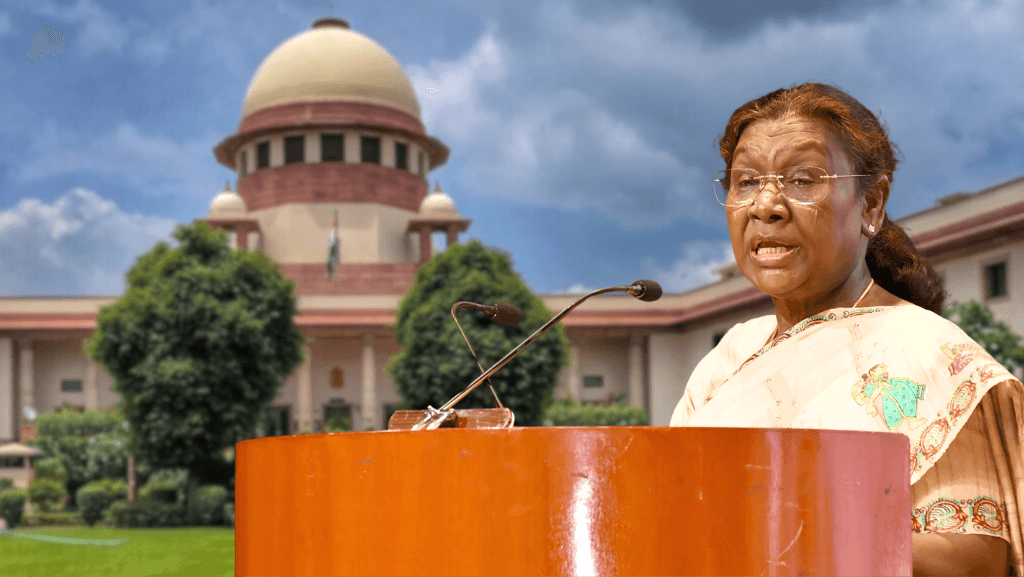
Presidential References Under Article 143: The Supreme Court's Advisory Power Explained
From landmark cases to evolving legal standards—how Article 143 allows the Indian President to seek the judiciary’s counsel on matters of national importance.
In India’s constitutional framework, where the doctrine of separation of powers is fundamental, Article 143 of the Constitution grants the President the authority to seek the Supreme Court’s opinion on questions of law or fact that bear public importance. Though the advice rendered under this Article is non-binding, it has played a critical role in interpreting legal and constitutional issues that impact national governance.
Decoding Article 143: What Does It Mean?
Article 143 reads as follows:
-
Under Clause (1), the President may refer any question of law or fact of public importance to the Supreme Court for its opinion.
-
Clause (2) references pending cases where the President may seek an advisory opinion to assist judicial proceedings.
The Supreme Court, while not obligated to provide an opinion under Clause (1), has historically considered such references an opportunity to clarify ambiguous constitutional matters, reinforcing legal stability and institutional dialogue.
Notable Presidential References in Indian Legal History
India has seen several high-profile invocations of Article 143. These cases underscore how this constitutional tool has helped resolve complex legal dilemmas:
-
Berubari Union Case (1960)
The first reference under Article 143 involved the Indo-Pakistan Agreement to transfer the Berubari Union territory to Pakistan. The Supreme Court held that such a cession of Indian territory required a constitutional amendment under Article 368.
-
Presidential Election (1974)
This reference questioned the legality of the election process during the Emergency period. The Supreme Court provided clarity, affirming that the Emergency did not impair the election process.
-
Special Courts Bill (1979)
Here, the Supreme Court was asked to opine the constitutionality of setting up special courts for trying former political leaders. It ruled that the law was valid, reinforcing the parliament’s power to create special judicial forums.
-
Ayodhya Reference (1993)
One of the most debated Article 143 references involved whether a temple existed beneath the demolished Babri Masjid. The Court declined to answer, stating that the matter was hypothetical and could influence ongoing litigation.
-
2G Spectrum Case (2012)
Though not strictly under Article 143, the aftermath of the 2G scam saw the Court advising on spectrum allocation, influencing policies on natural resource distribution, and affirming the principles of transparency and public trust.
The Legal Stance: When the Court Speaks, the Nation Listens
Although the Court's opinion under Article 143(1) is not binding, it holds immense persuasive value. By invoking this Article, the President acknowledges the Supreme Court’s role not just as a judicial authority but as a constitutional advisor.
Legal experts point out that this mechanism allows pre-emptive clarification in high-stakes matters, thereby reducing legal uncertainty and promoting the rule of law. This provision has prevented prolonged litigation, especially in politically charged issues.
Expert Insight:
Speaking on the constitutional relevance of Article 143, Sunil Ambalavelil, a famous Indian lawyer in Dubai and Chairman of Kaden Boriss, one of the best professional law firms in the region, noted:
"Article 143 represents a unique model of judicial-advisory integration, where the highest Court assists the executive without encroaching on parliamentary sovereignty. In global comparative constitutional law, such provisions help avoid legal ambiguities in emerging governance issues."
Mr. Ambalavelil, known among the top lawyers in the UAE, added that this advisory mechanism is especially relevant in times of legal transformation, such as the introduction of digital laws, environmental jurisprudence, or electoral reforms.
Comparative Legal Systems: How Other Democracies Handle Similar Questions
India's Article 143 resembles the Canadian Reference Procedure, where the Governor General can refer constitutional questions to the Supreme Court of Canada. Similarly, in the United Kingdom, advisory opinions are given through declaratory judgments.
However, what makes Article 143 distinct is its inclusion in a written constitution with judicial independence deeply embedded, ensuring that the advisory opinion is deliberated independently and thoroughly, even if non-binding.
Why Article 143 Matters Today?
In today’s era of rapid technological and socio-political change, Article 143 offers the President and Parliament an avenue to pre-emptively resolve constitutional conflicts. With challenges like:
-
Climate change-related laws
-
Cryptocurrency regulation
-
Electoral funding
-
Uniform Civil Code debates
It is increasingly evident that this constitutional provision may serve as a preventive jurisprudential mechanism.
Legal scholars and civil litigation lawyers have emphasized the potential of Article 143 in narrowing interpretative gaps between the executive and judiciary. It also empowers legal advisors, solicitors, and attorneys to understand how the judiciary may respond to policy questions before they become contentious.
Call for Broader Utilization
While the President of India has used this power sparingly, legal experts and influential lawyers argue that Article 143 should be used more frequently, especially for disputed or ambiguous legislation that impacts fundamental rights or federal structure.
For young legal practitioners, law interns, and those seeking exposure to constitutional litigation, studying Article 143 cases offers a valuable look at how laws are interpreted and policy is guided in a democracy.
Final Word
Article 143 acts as a constitutional compass, allowing the executive branch to align its actions with judicial principles without overstepping boundaries. It ensures legal coherence in complex matters and strengthens institutional respect between government branches.
As India continues to navigate challenging legal terrains, the significance of presidential references under Article 143 is expected to grow. With evolving jurisprudence and dynamic policy landscapes, this constitutional tool remains a beacon of advisory jurisprudence, facilitating informed governance in the world’s largest democracy.
Stay tuned to The Law Reporters. Contact info@thelawreporters.com or call us at +971 52 644 3004. Follow The Law Reporters on WhatsApp Channels